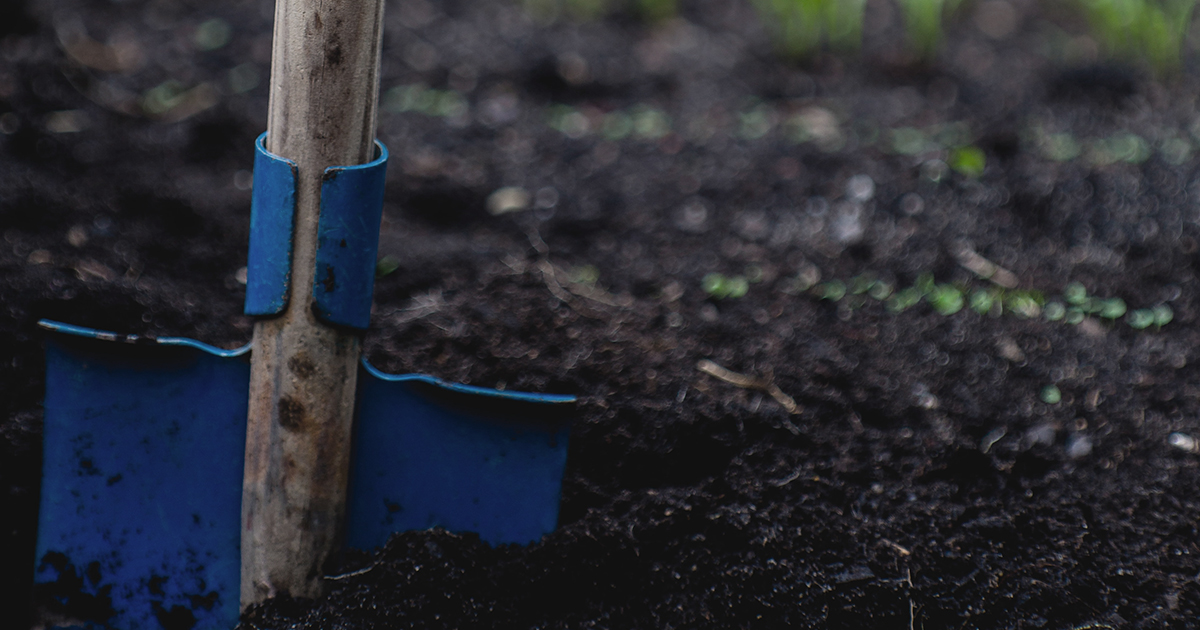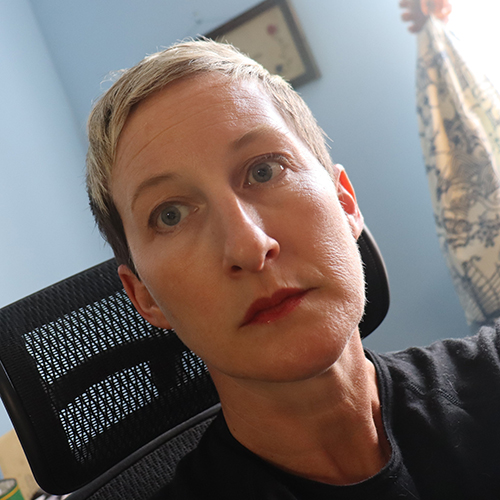SARA DYKINS
★ ★ ★ ★
FLASH FICTION

Image by Marcus Spiske
‘From Her Shadow’
Such a fine line between mercy and murder, Ruth thought as she adeptly severed the head of a frail brown lizard caught in a glue trap. The traps hanging from the branches of the lemon tree were meant to catch psyllids, but had proven unexpectedly attractive to lizards. Ruth made a mental note to remove them later. Right now, she had more pressing concerns. The new plot was ready, and the coreopsis needed planting. Tickseed, as the perennial was commonly called, was not one of Ruth’s favorites, but it suited this last-minute project. Ruth was exhausted just thinking about all the things she had to accomplish on such short notice. But it was finally over, and now she could relax into her gardening.
Soil is a benevolent material. It shelters the decomposers–bacteria, fungi–and the unpleasant critters who perform the grave tasks that ultimately support life. Ruth kneeled on the edge of the slightly raised bed with its friable, richly hued layers of humus and began the work of positioning, digging, filling, tamping, and watering-in each seedling. Neighbors passed by on predawn walks, waving and complimenting the beauty of Ruth’s ever-expanding opus. Ruth had never been what you’d call a social person until she started gardening. Now, she knew her neighbors, participated in the semiannual plant festival, and served as secretary of the local garden club. She had become a pillar of the community, well-liked even by the city workers who would often stop and chat about Ruth’s landscaping strategies.
Having finished setting the coreopsis into place, Ruth leaned back on her heels and took a deep, contented breath. The smell of earth soothed any residual aches, including those that plagued her soul. She reminded herself she was satisfied with her life. She would never really be alone. There were the plants, of course, and the wildlife inhabiting the garden: birds, squirrels, damselflies, bees, and any number of unnamable insects flittering, buzzing, and chomping on the buffet Ruth provided. There were feral cats keeping vermin in check. And, though she’d only seen one once slipping through the gray of dusk, there were coyotes. No, she wasn’t alone; she was an important part of an ecosystem. And this was the life she was choosing to live.
Years ago, Ruth had been married—technically, legally, she guessed she still was—but her husband had absconded with a pert little redhead from the office. Or at least, that was everyone’s best guess when HR received their resignations. Disappointing, for sure, but Ruth was accustomed to disappointment. Her mother had seen to that. There was no impressing the woman. Indeed, she had barely acknowledged Ruth’s life as anything other than a sounding-board for her frustrations with her sons. But, as the therapist pointed out, Ruth’s mother’s narcissism prevented her from experiencing—or being able to offer—love. Truly a tragic condition. Ruth was lucky to have the guidance of a professional to help her come to terms with the limitations of one’s own will: you cannot—no matter how hard you try or how innovative your attempts—make somebody love you the way you want to be loved.
In addition to the pharmaceuticals, Ruth’s therapist prescribed gardening. She said the actions of digging and planting would provide a tangible and metaphorical experience of laying Ruth’s troubles to rest. While her early attempts were awkward and often unsuccessful, Ruth threw herself into the hobby when her marriage failed. She learned as much as she could about soil composition, composting, microclimates, irrigation, and the myriad species of edible and ornamental plants. It became her passion, and she became quite skilled and knowledgeable. So much so, she was now an approachable source of information and advice for her neighbors. No, she would never be alone.
Ruth stood and surveyed her new addition. Lovely, really. And when the coreopsis filled out, it would create a spectacular explosion of yellows and oranges so bright they would shame the sun. Fitting, Ruth thought. She remembered the shame she had felt when she discovered she was not enough to prevent her husband’s wandering eye, and her mother’s cocked eyebrow that said, I told you so. She turned her attention to the newly budded lemon tree. She had chosen a lemon precisely for its complex flavor profile: a bite of acid tempered by a mild sweetness. It fit the occasion: marking Ruth’s husband’s departure. And the coreopsis fit this occasion: commemorating the end of Ruth’s troubled relationship with her mother.
Since she was a child, Ruth couldn’t stomach yellow. It was the color of her mother—loud, disconcerting, abrasive. Because of her cursed Ph.D., Ruth’s mother thought she knew it all. When she wasn’t doting on her sons, she was ruthlessly wielding her red pen to destroy Ruth’s dreams. Sweetheart, she would say in her saccharine way, if you ever intend to become more than adequate, you must kill your darlings. Her mother: whose academic treatises on critical literary theory had graced the bookshelves in Ruth’s childhood bedroom; whose collections of poetry had been scattered around the house in places they would surely attract attention; whose estimation of herself was so high Ruth was destined to dwell in shadow.
But no longer. Today, Ruth stood in the midst of her garden—her sanctuary, her sanity—and relished the comfort of the sun’s rays. She closed her eyes and remembered for this last time what had proved to be her mother’s most useful criticism: How many times must I tell you to eliminate the superfluous, no matter how much you love it? For the greater good of the work.
Ruth opened her eyes and smiled, waving at Officer Johnson, whose cruiser was pulling into the driveway.

Sara Dykins lives and gardens in Florida with her canine and human companions. Stories and poems are the humus that comes from her life’s compost pile.
























0 Comments